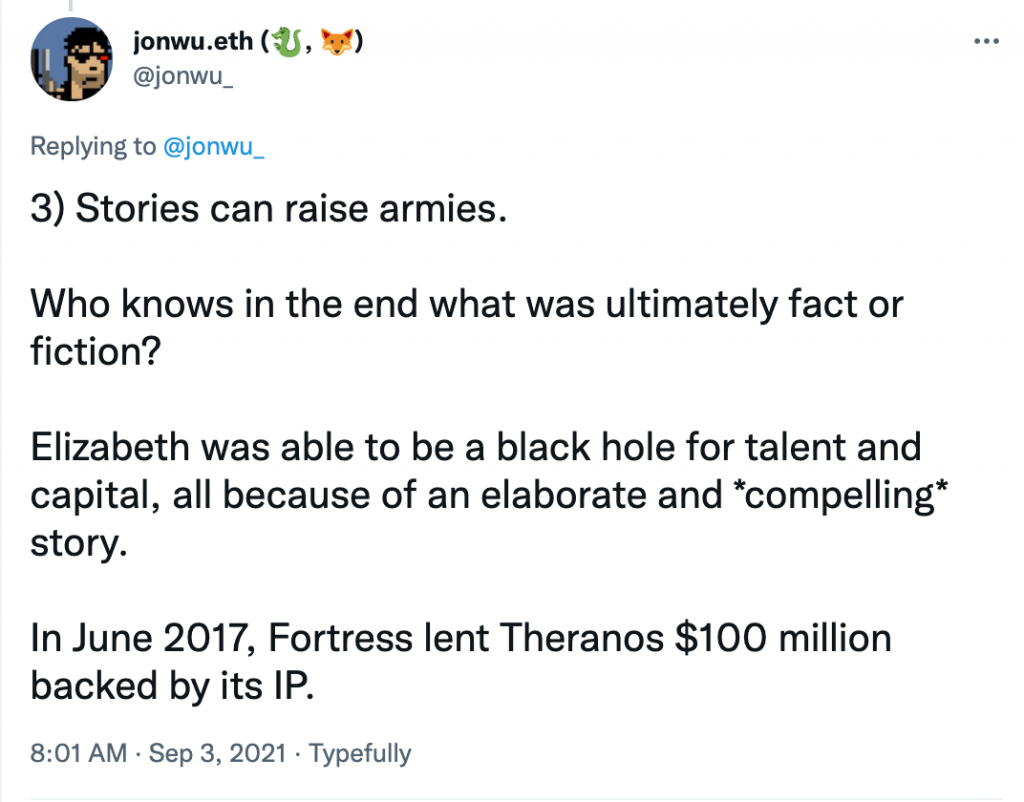We’ve all heard the story of entrepreneurial superkind Elizabeth Holmes and her revolutionary healthcare company Theranos… which turned out to be a major scam.
jonwu.eth recently published a little anecdote that shows how much of the power of storytelling played a role in this debacle.
He got offered a job at Theranos after it was already public knowledge that this company was a big fraud—and yet his professor from Harvard Business School not just introduced him to Theranos, but strongly recommended that he’d take the job.
He describes the first encounter he had with Elizabeth Holmes as follows.
She walked in the room, fully confident, not defensive at all, and fully owning her mistakes… at least that’s the impression she made, and she pretended that her mistakes weren’t what the public perception was, but simply that she rushed to market too quickly.
Apparently she offered him a job and told him that she needs someone who believes in her and can help her to become the CEO she knew she could be. Very compelling. She made him feel special, as if she’d see something great and amazing within him.
If you think of personality falling on a spectrum:
jonwu.eth
One side being fully authentic
The other being fully anufactured
The spectrum curves around like a horseshoe, such that the ends look remrkably similar.
For the life of me I could not tell which end she fell on.
In the end, he didn’t accept the job, but he took away three insights. The other two, I suggest you read for yourself because the entire twitter thread is well worth reading (and literally just takes a minute), but for the purpose of this post, I want to focus on the final one, which is about the power of stories:
